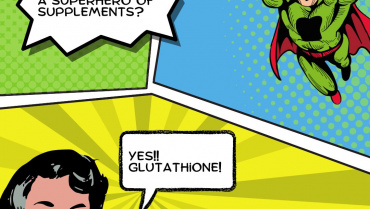With summer travel in full swing, I thought I’d share some tips that I’ve learned over the years to help me stay relaxed and limber on long trips. These are tried and true ways to reduce the discomfort of long car or plane rides.
Recently, I drove from State College to the Adirondacks, about an 8-hour drive when you include a few brief stops. I arrived with a horrendous crick in my back and was so stiff that I could barely hobble from the car to our cabin. Yowee! That was not a fun way to start a brief vacation. I had forgotten to take care of my body and prepare for travel by adjusting my supplement regimen in anticipation of the long drive.
I was much smarter on the way home and arrived home with no issues at all, feeling limber and comfortable, not at all stiff or sore.
What was the difference?
Calcium-Magnesium to the rescue
On the way home, I remembered the importance of increasing my mineral intake. I tripled my calcium- magnesium intake on the day of travel and it made all the difference. Magnesium is such an effective and safe muscle relaxant. It helps our muscles relax after contraction. Without it, our muscles would stay in permanent contraction, which can be painful and hamper daily activities as well as athletic performance. Magnesium deficiency can lead to constant muscle cramps, muscle spasms, tics, twitches, and prolonged muscle soreness. It can also cause intense chocolate cravings! So, if you experience those, up your magnesium and notice your cravings calm down.
Choosing your best magnesium
There are many forms of magnesium to choose from depending on your needs. For example, if you tend towards constipation, use the magnesium malate or citrate form. Magnesium malate helps rehydrate the stool and soften it, making elimination easier. And since travel often causes constipation, it’s an ideal form to help keep things regular AND help you arrive at your destination comfortably. Keep in mind that tight back muscles can contribute to constipation and relaxing them with some stretching may also facilitate easy bowels.
If constipation is not an issue, use the buffered magnesium chelate form, which will not affect the bowels and is well absorbed. If you have extremely sensitive bowels or tend towards chronic loose stools (you should see a clinical nutritionist!) but in the meantime you can use a gel or spray form of magnesium, which gets absorbed through the skin and can be applied directly to the crampy or twitchy spot. Keep in mind that Epsom salts are magnesium sulfate, yet another form of magnesium that can be used as a laxative and that is helpful for soaking away aches and pains.
Choose easy-to-absorb calcium
When it comes to calcium, l recommend the easily assimilated form such as calcium malate. Avoid the calcium carbonate form as this is simply limestone and hard to absorb! Calcium and magnesium depend on each other for proper assimilation. Calcium is essential to the health of bones, teeth, and muscles, and it plays an essential role in blood clotting, nerve conduction and many cellular functions. Magnesium is an integral part of more than 300 enzymes in the body and, with calcium, affects nerve and muscle functions.
Generally, a 2:1 ratio of calcium to magnesium suits most people. An exception to this would be if you have a history of kidney stones, especially if they are made of calcium (although most kidney stones are oxalic acid and calcium helps to break them down). If you do tend towards forming calcium stones then stick to magnesium, which is actually THE intervention for preventing stones from forming.
Be alert to calcium and magnesium drains
Travel is not the only situation requiring an adjustment in your calcium-magnesium intake. There are several ways we lose calcium and magnesium, causing our stores to decline. Many common medications drain calcium and/or magnesium or block its absorption. A substantial list of medications, many of them used long-term, can cause calcium and magnesium wasting. These include stomach acid blockers called PPI’s or H2 blockers, such as nexium, prilosec and pepcid AC. Other common ones include diabetes medications, antibiotics, birth control and hormone replacement, steroids, and diuretics.
Another way that we can deplete our calcium and magnesium stores is through sweating. With summer coming, pay attention to replacing your electrolytes. Feeling dizzy or lightheaded can be related to depleted electrolytes and remedied with something as simple as an EmergenC type drink, available at grocery stores, with extra sea salt or pink Himalayan salt added. Its fizzy, tasty, and has less sugar and more minerals than conventional sports drinks, while also supplying a meaningful dose of vitamin C. The vitamin C acts to clear lactic acid from the muscles and is another way to reduce muscle soreness, especially if associated with a workout. I also find these packets a great pick-me-up when added to a bottle of water while traveling.
With a little planning, you can ease travel related stiffness, soreness, muscle cramping, and constipation with a few simple supplements. Contact us for a free 15-minute consultation or appointment so we can be sure the right supplements find a place in your suitcase!
Happy Travels!






Add Comment